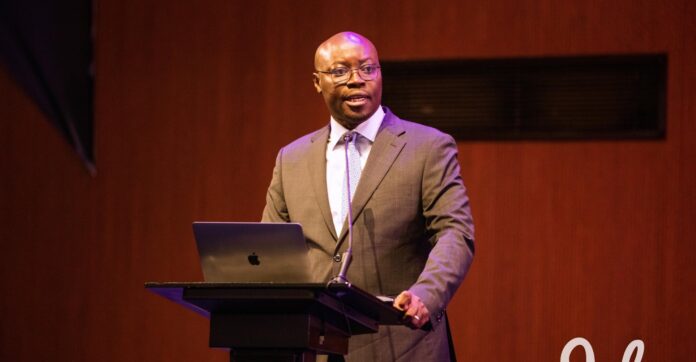By Joshua Worlasi AMLANU & Ebenezer Chike Adjei Njoku
Following the Ministry of Finance’s assurances last week – that government is committed to equitable treatment for all classes of investors – it has emerged that the state has failed to reach agreement with a group of overseas bondholders controlling millions of dollars in debt, despite offering to expand existing government bonds to make them more attractive for investors.
The Ministry of Finance disclosed on Wednesday that private negotiations with holders of US$253.2million in bonds issued through Saderea Limited have reached an impasse, with both sides rejecting each other’s proposals for restructuring the debt.
The bondholders, who control approximately 60 percent of the outstanding US$117.8million in Saderea notes, are seeking full repayment of their investments without any reduction in the amounts owed. This stands in sharp contrast to other international investors who accepted significant losses during the recent debt restructuring programme.
Government has proposed what finance officials call a ‘tap issuance’ – expanding existing government bonds issued in October 2024 rather than creating entirely new securities. This approach would allow the Saderea bondholders to receive more liquid investments that can be easily traded on international markets.
Under government’s latest proposal, bondholders would exchange their current investments for a combination of four different government bonds with varying maturity dates ranging from 2026 to 2035. For every US$1,000 they currently hold, investors would receive approximately US$742 in new government bonds.
However, this represents a 39 percent reduction in the value of their claims – which the bondholders have rejected. Instead, they want to receive newly issued bonds through reopening government’s October 2024 debt exchange programme without any losses.
The disagreement centres on what officials term ‘comparability of treatment’ – the principle that all creditors should face similar losses. Other international bondholders who participated in the nation’s debt restructuring programme last year accepted a 48 percent reduction in the value of their investments.
“Government views the Saderea Ad Hoc Committee’s Proposal as incompatible with the principle of Comparability of Treatment; notably as it does not contribute to any present value reduction,” the Ministry of Finance stated in its announcement.
The Saderea bonds carry a 12.5 percent interest rate and were originally due for repayment in 2026. They are secured bonds, meaning they have additional protections compared to standard government debt.
The negotiating team, advised by international investment bank Lazard Frères and law firm Hogan Lovells, has presented three different proposals to the bondholders since talks began. The bondholders are represented by law firm Cleary Gottlieb Steen & Hamilton.
The first government proposal offered bondholders US$630 for every US$1,000 owed, payable through new unsecured government bonds maturing in 2033 with a five percent annual interest rate. This was rejected.
The bondholders then made their own proposal, requesting full recognition of all past due interest at the original 12.5 percent rate and compensation for previous payments made to other bondholders. They also demanded that government pay their legal fees.
Government’s second proposal, involving the tap issuance of existing bonds, was designed to address the bondholders’ preference for more liquid securities while maintaining debt relief objectives. This too was rejected.
The failed negotiations come as the nation continues to implement an economic recovery programme supported by the International Monetary Fund. Approximately US$13billion in international bonds were restructured as part of efforts to restore debt sustainability following an economic crisis.
Finance officials say any agreement must align with Ghana’s debt sustainability framework under the IMF programme and maintain the principle of equal treatment among creditors.
The bondholders declined to extend a confidentiality agreement governing the talks, suggesting negotiations may move to a more public phase. Government says it intends to continue good faith engagement to find a solution.
The domestic economy has shown signs of recovery following the debt restructuring programme, with inflation falling and the cedi stabilising against major currencies. However, government faces pressure to conclude remaining debt negotiations to fully restore investor confidence.
The Saderea bonds represent a relatively small portion of the total debt, but their resolution is seen as important for demonstrating government’s commitment to fair treatment of all creditors and maintaining discipline in its post-restructuring framework.
Any eventual agreement would need to satisfy both the bondholders’ desire for tradeable securities and government’s requirement for meaningful debt relief to ensure long-term economic sustainability.
The Ministry of Finance has characterised the disclosed information as price-sensitive, indicating it could affect the trading value of bonds in secondary markets.










